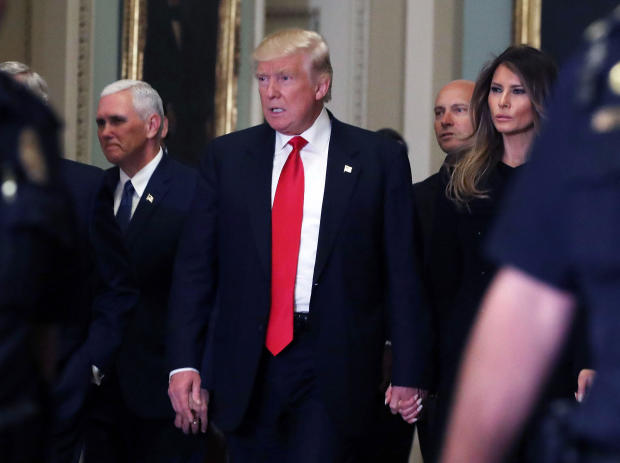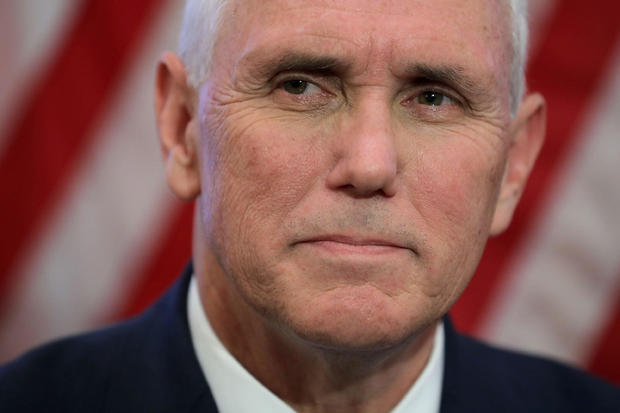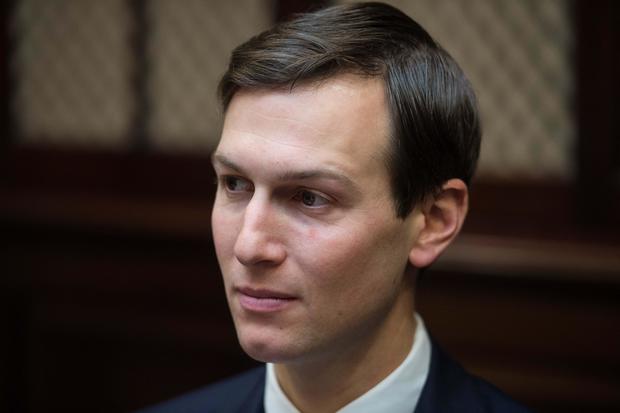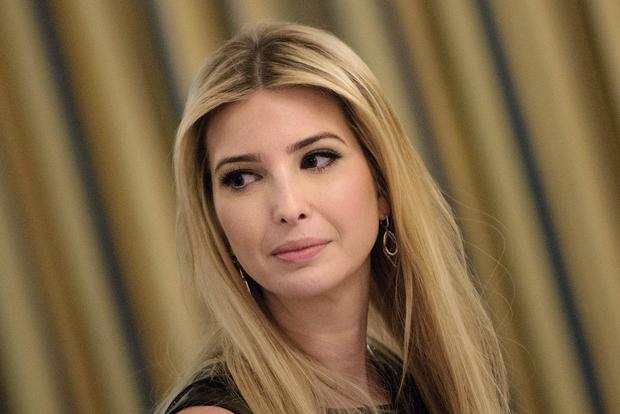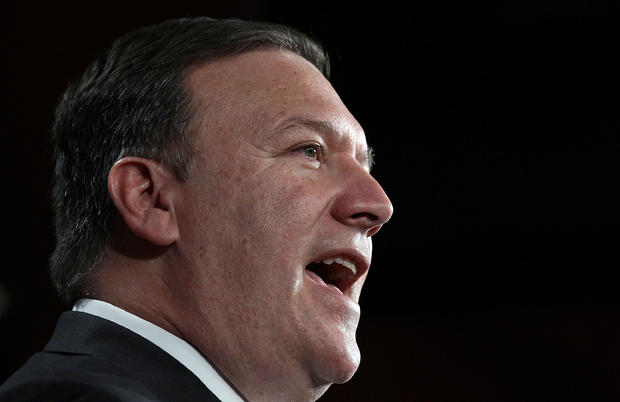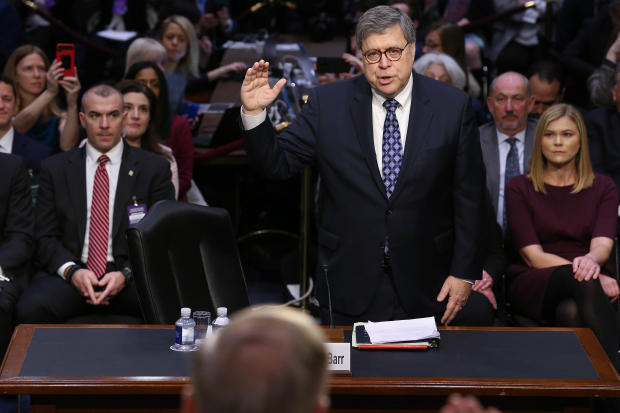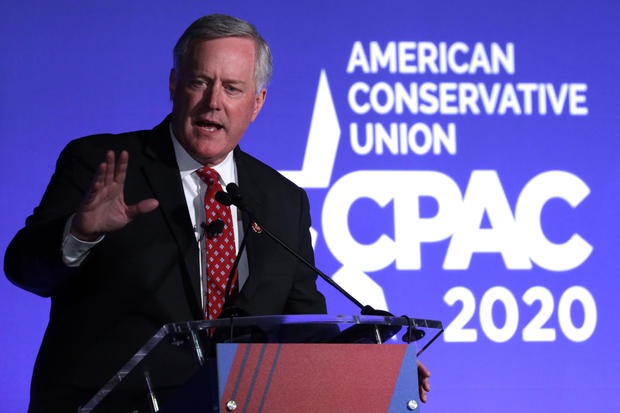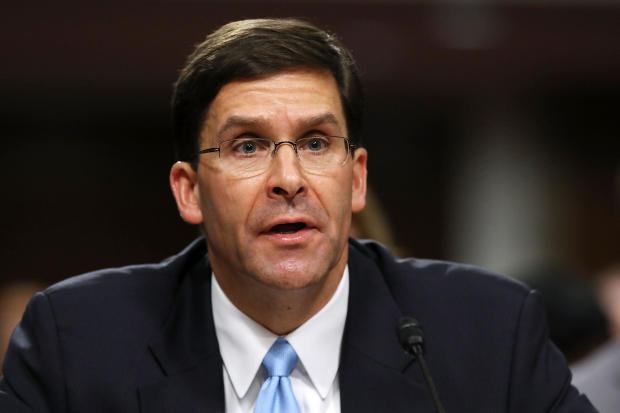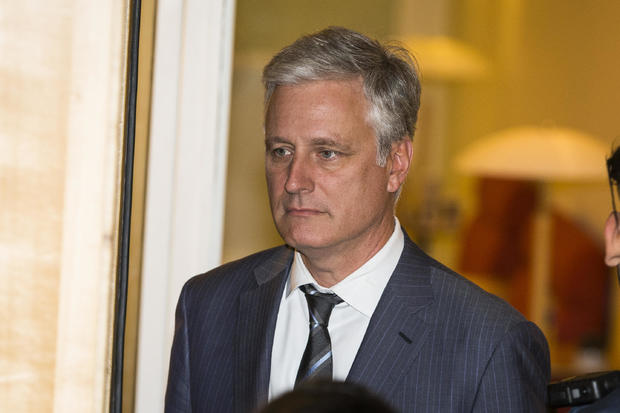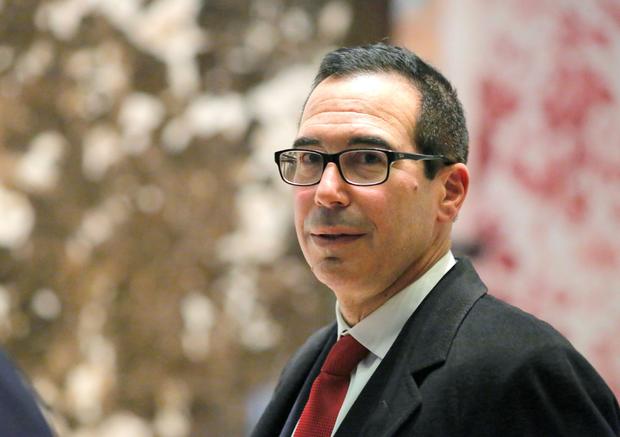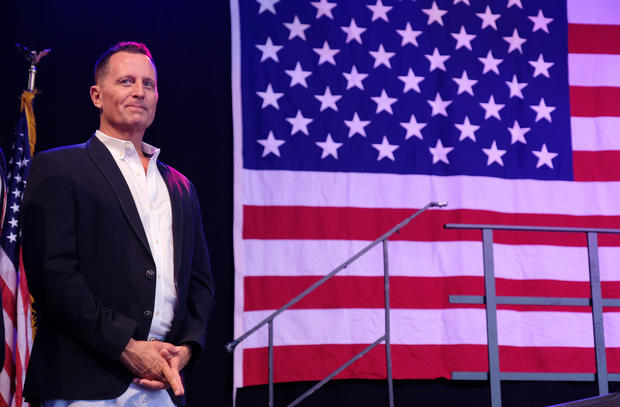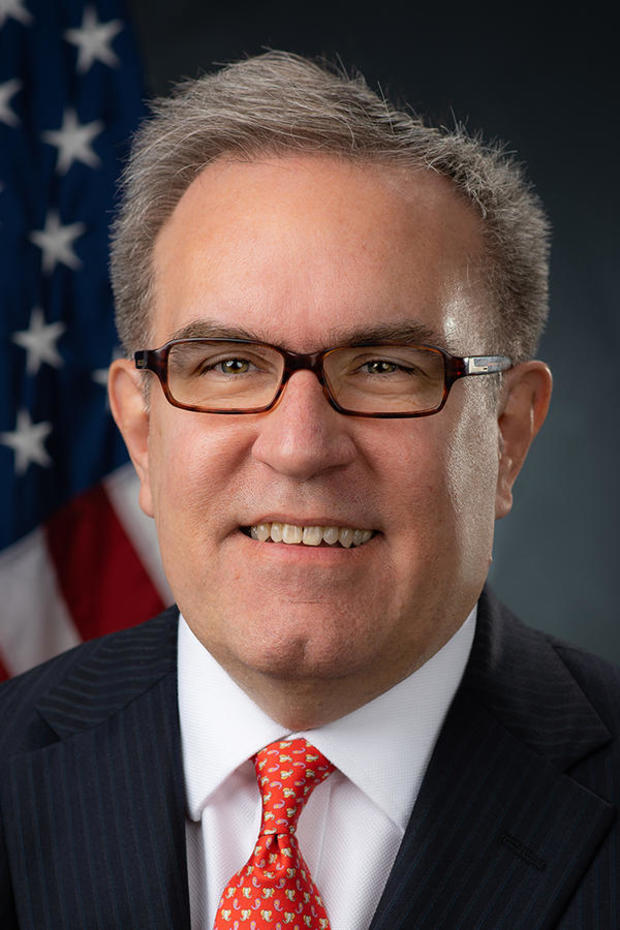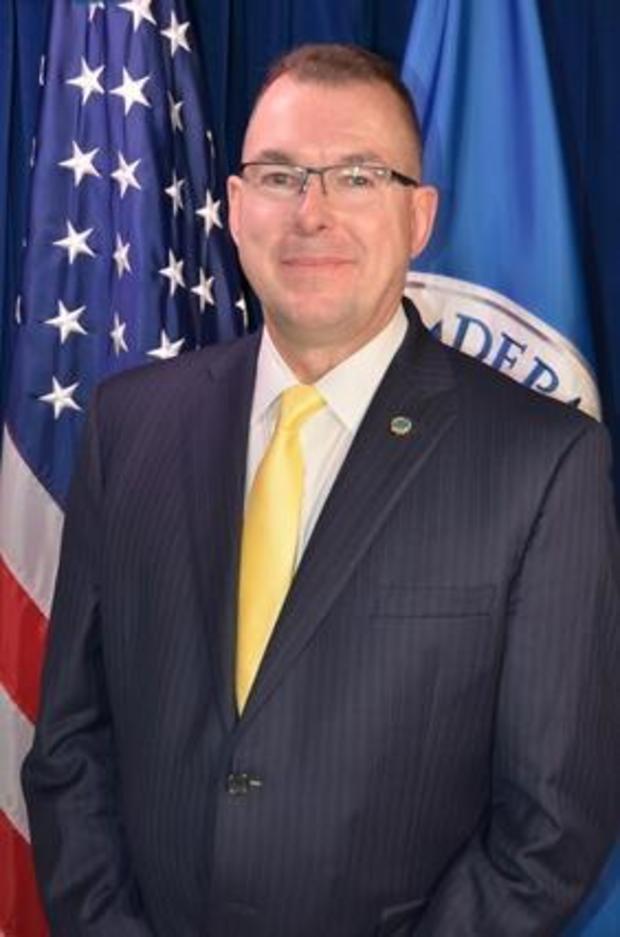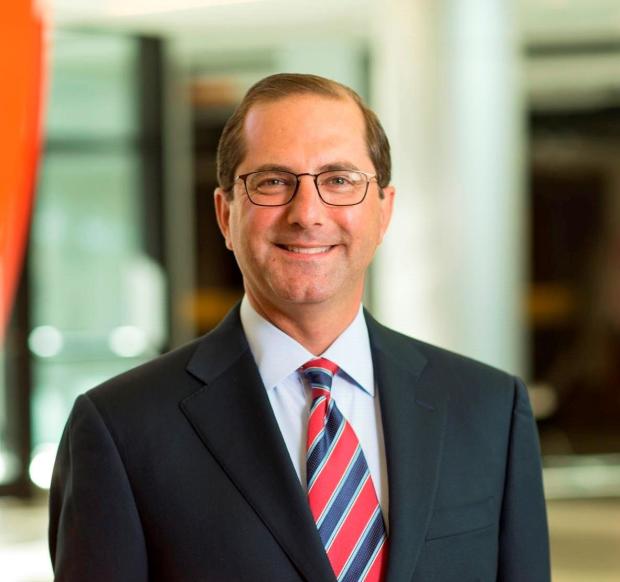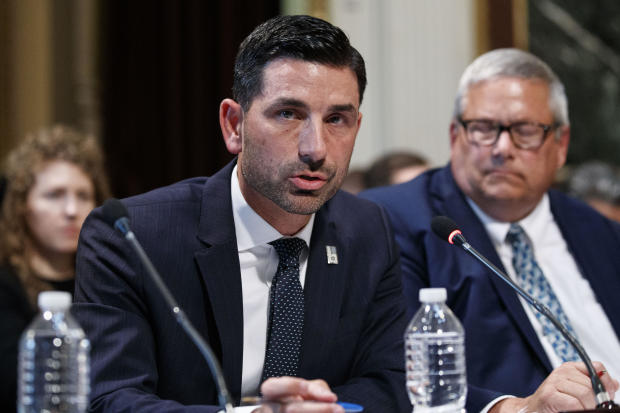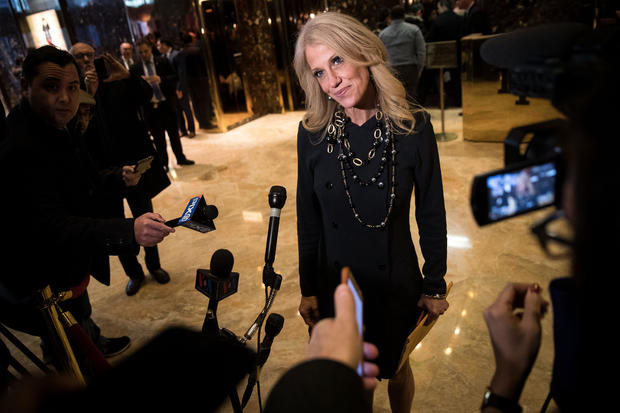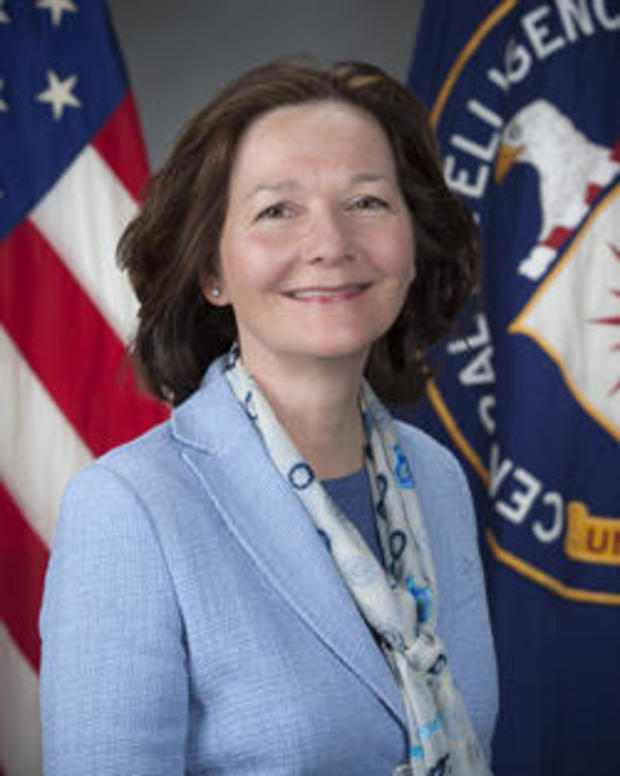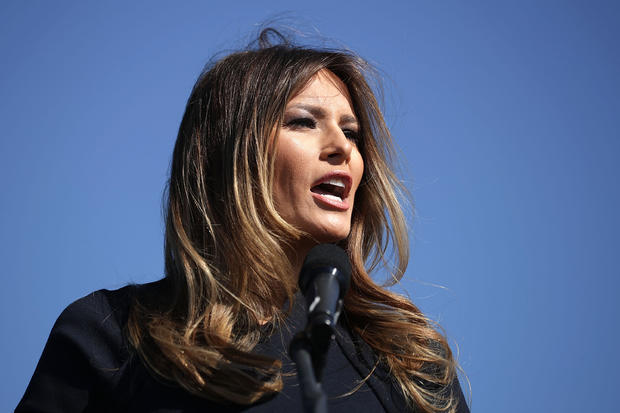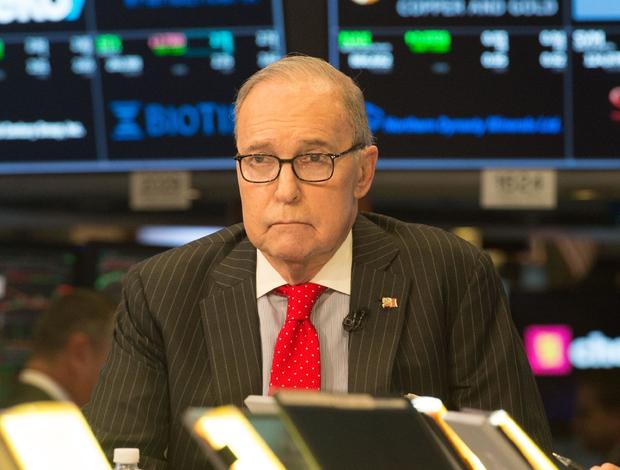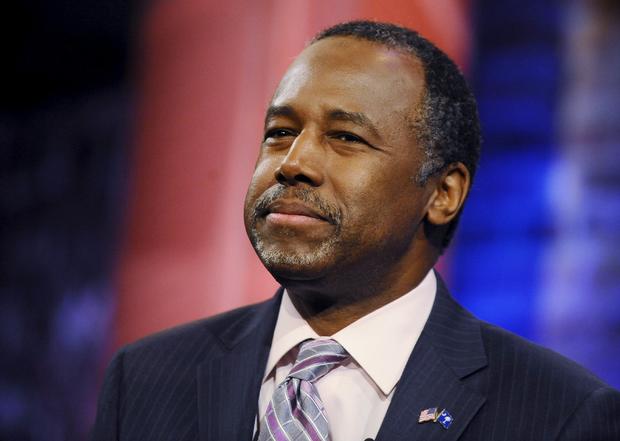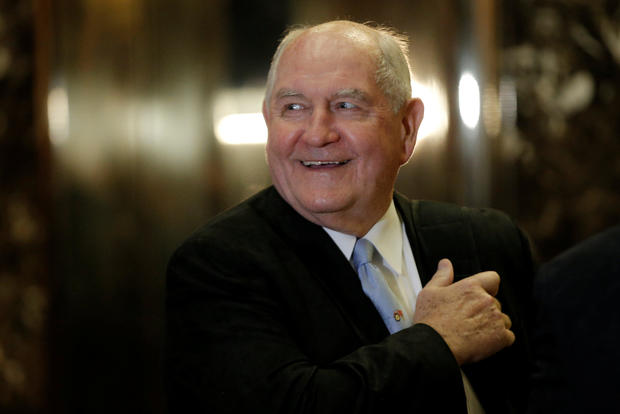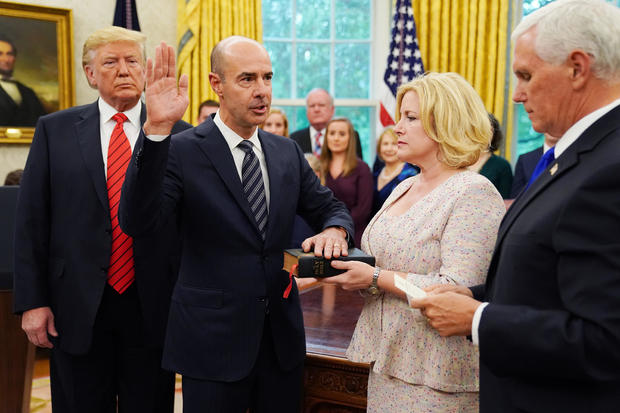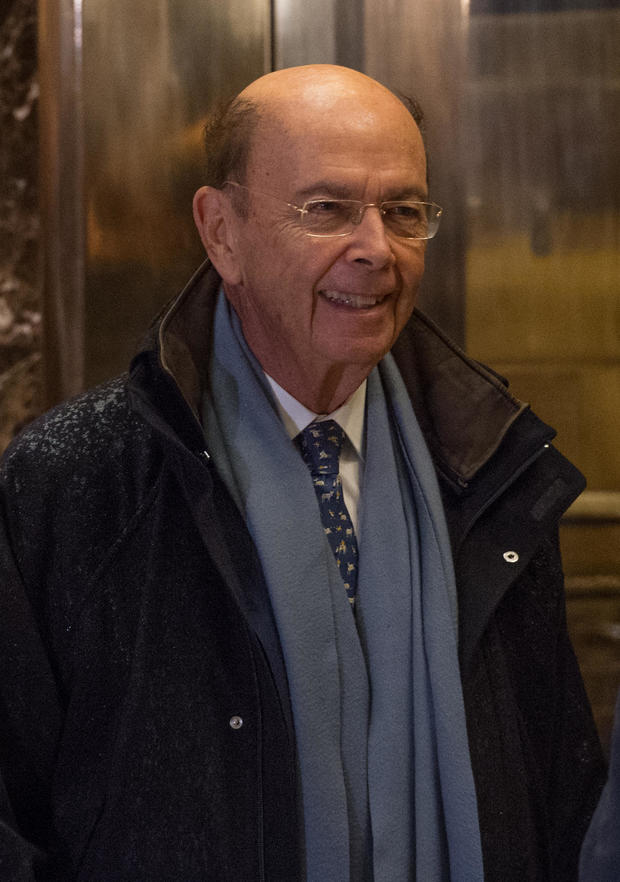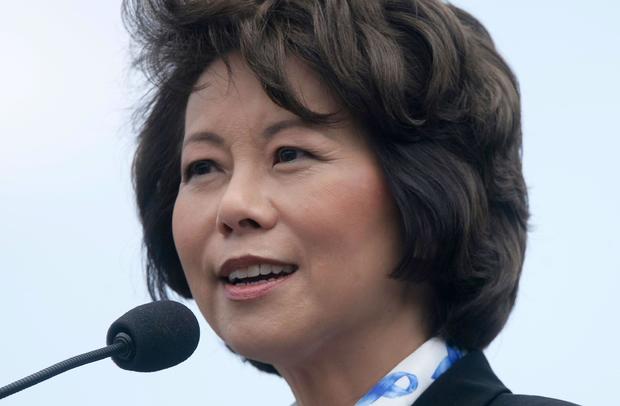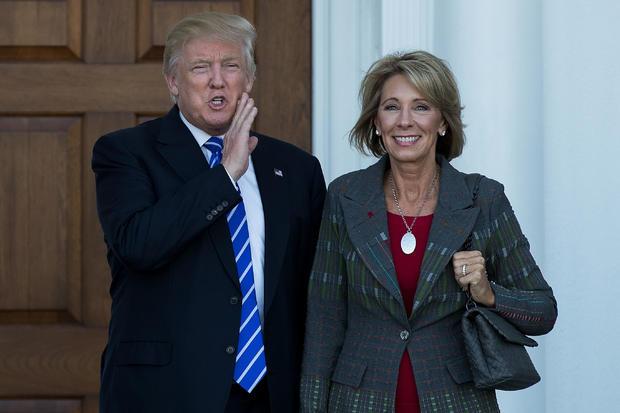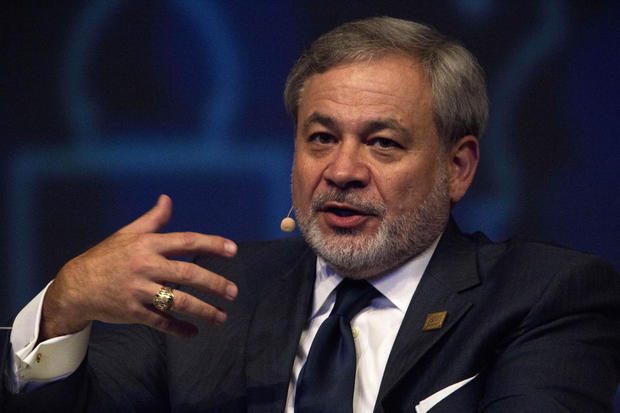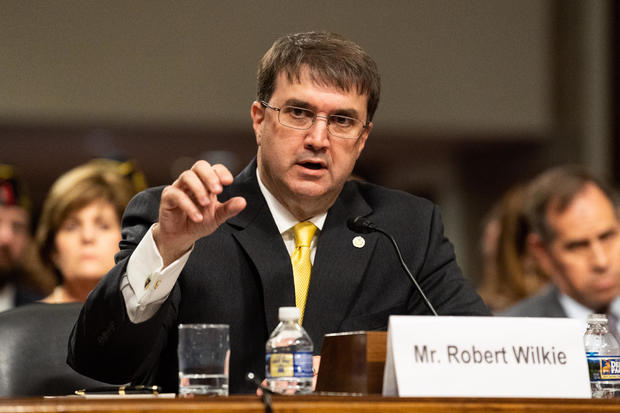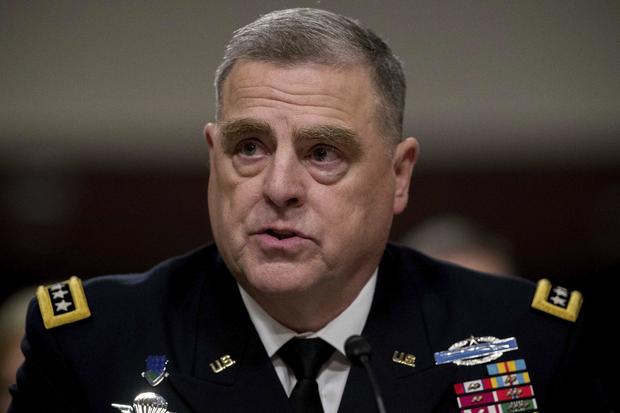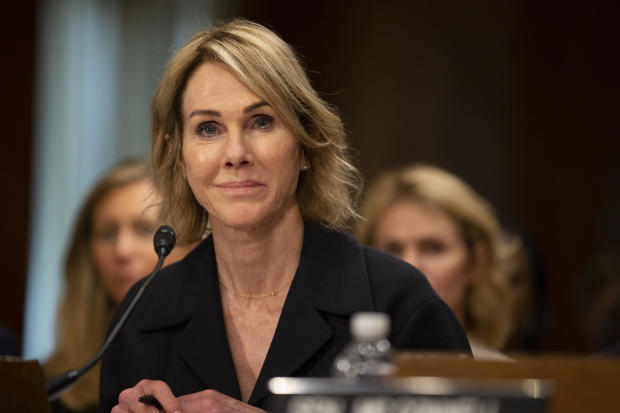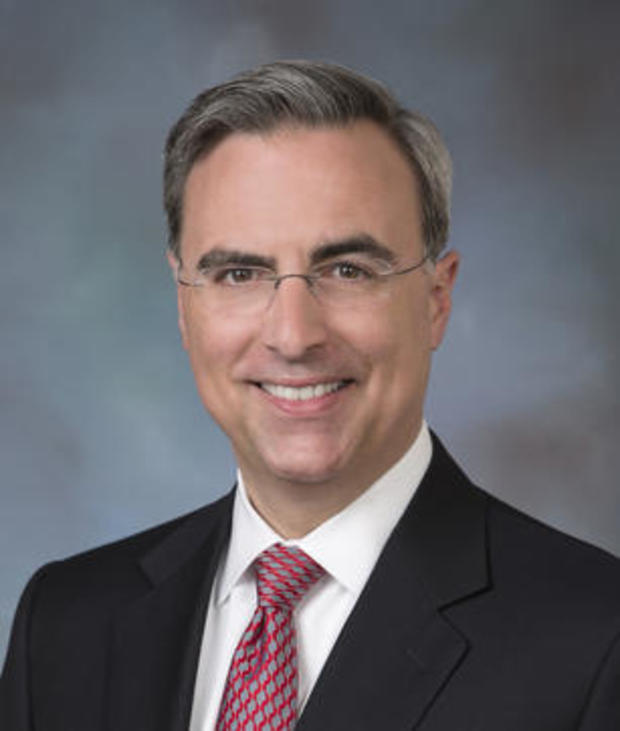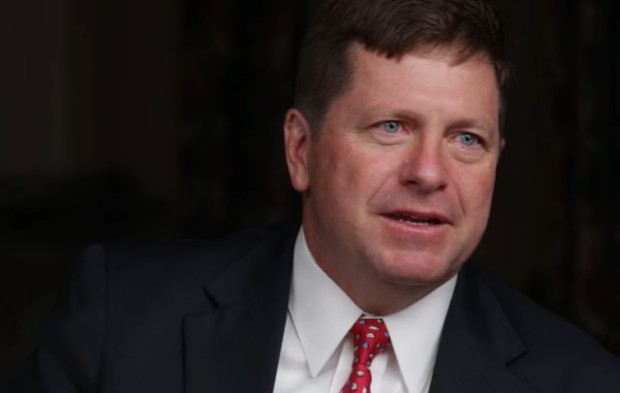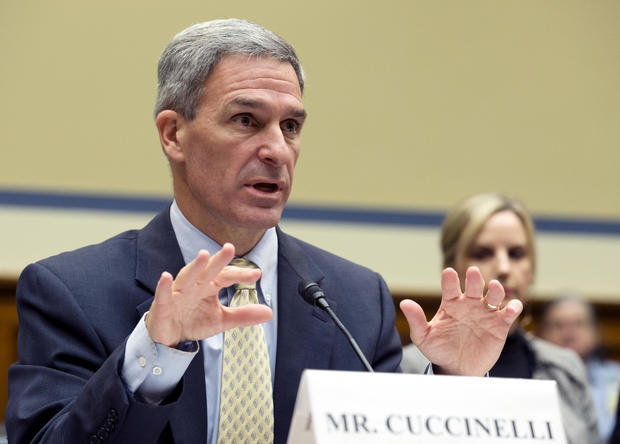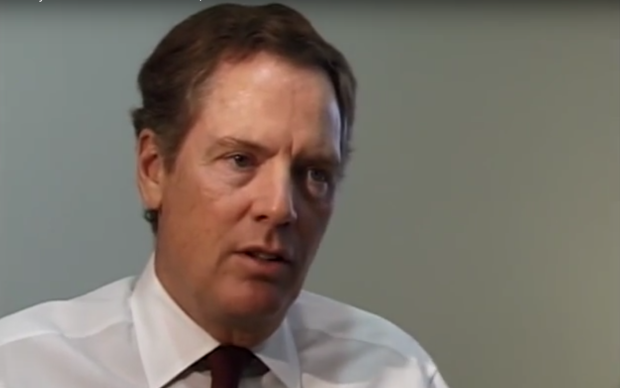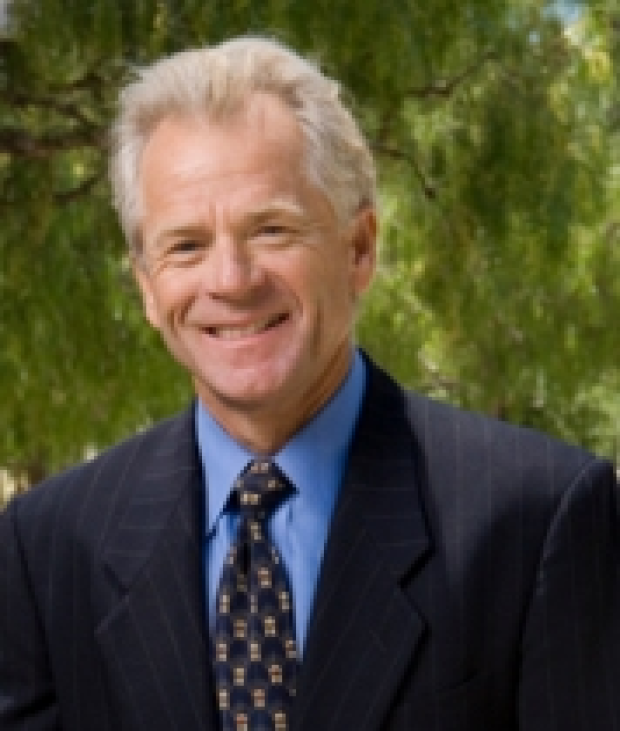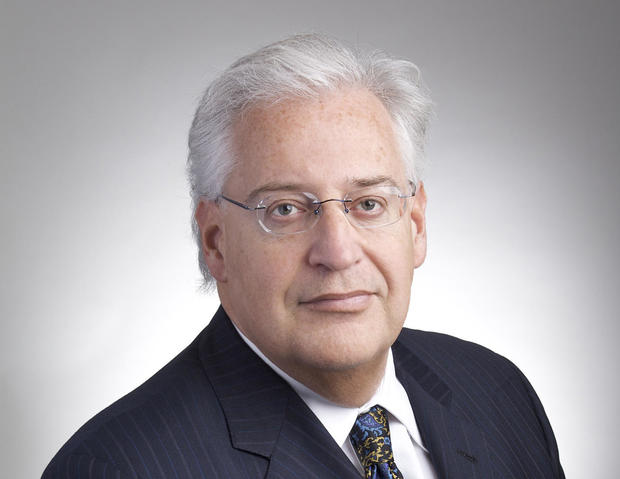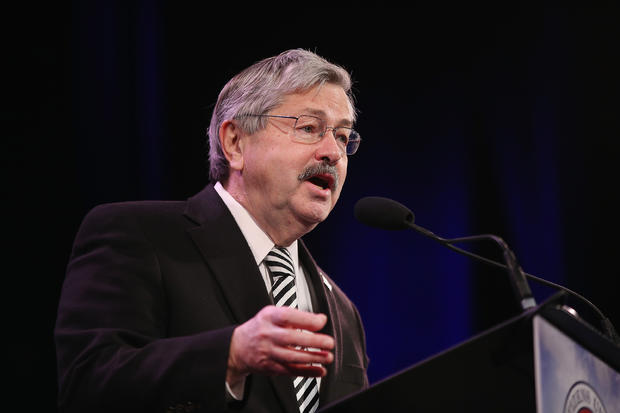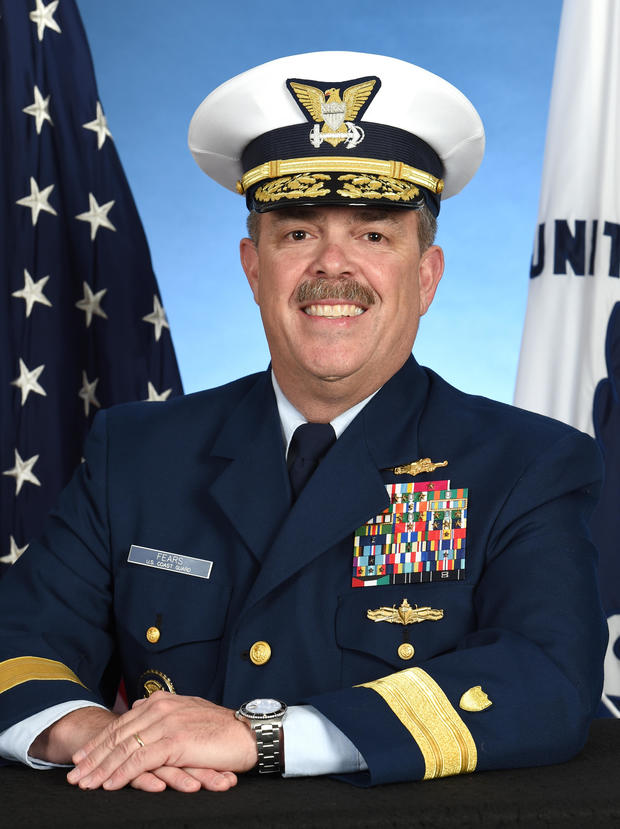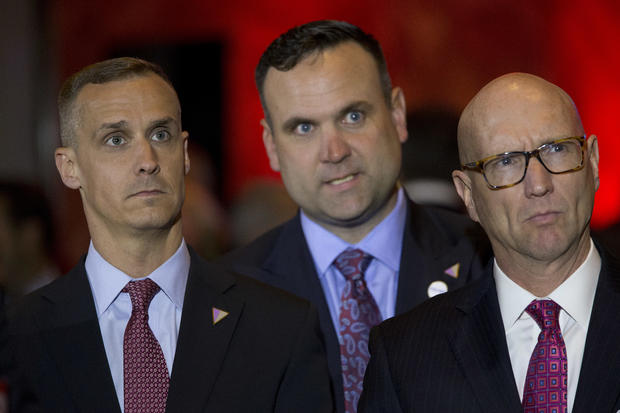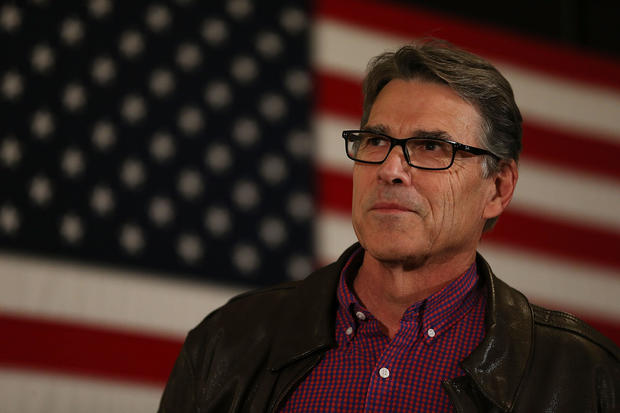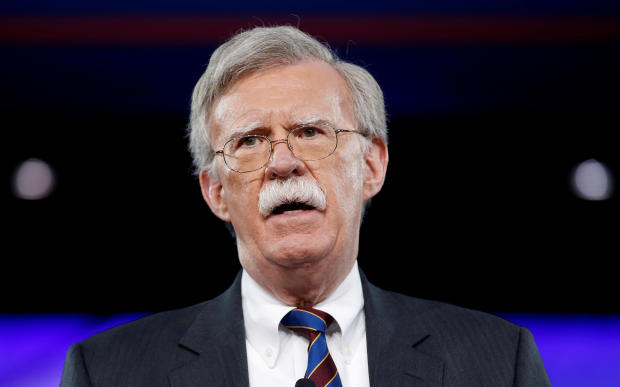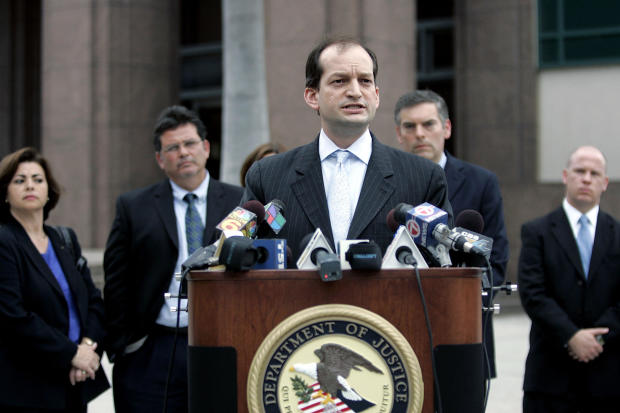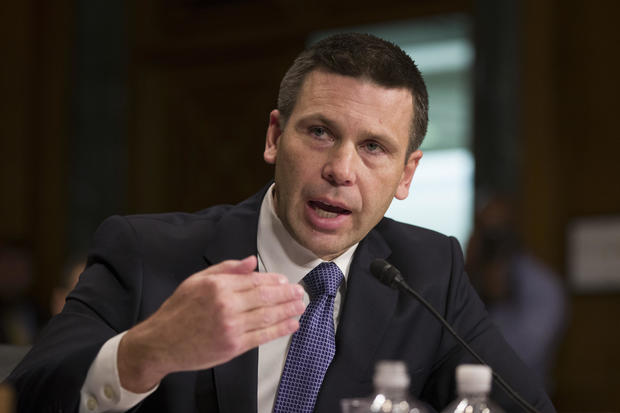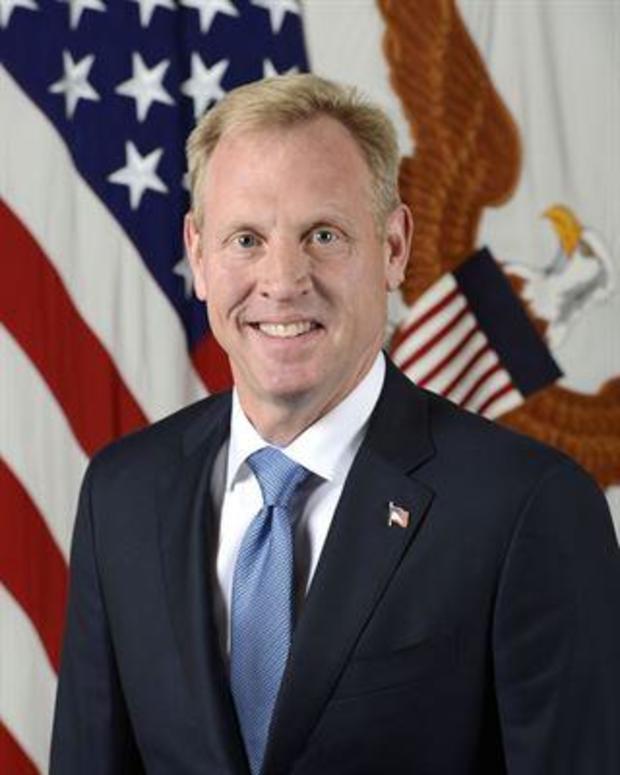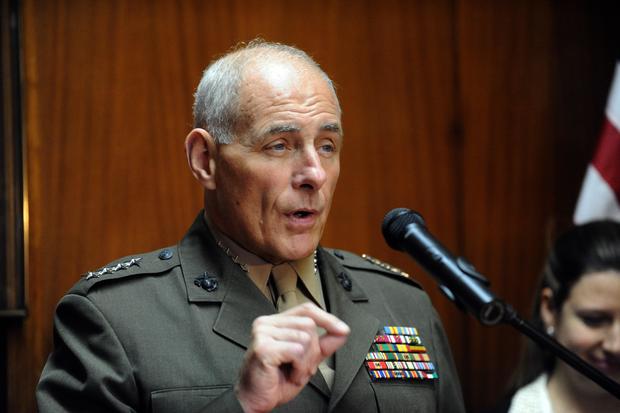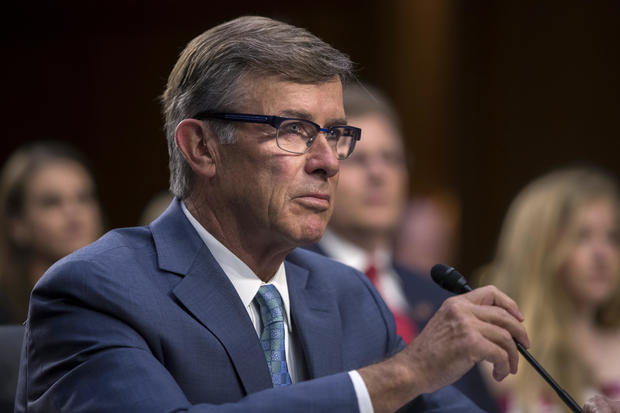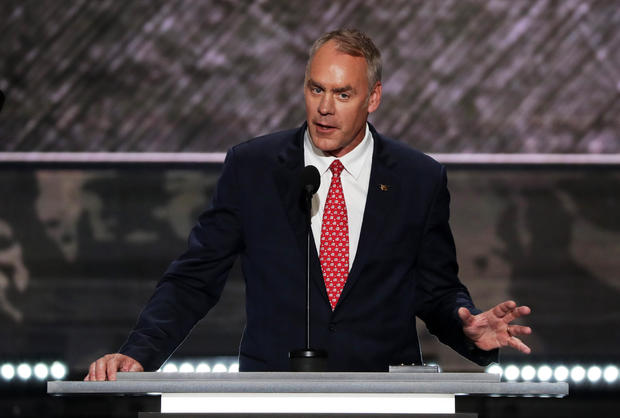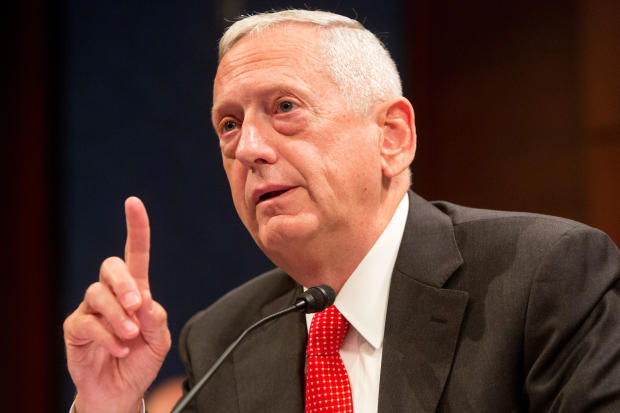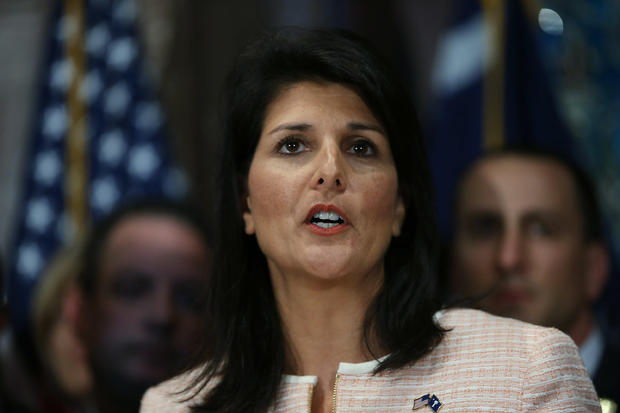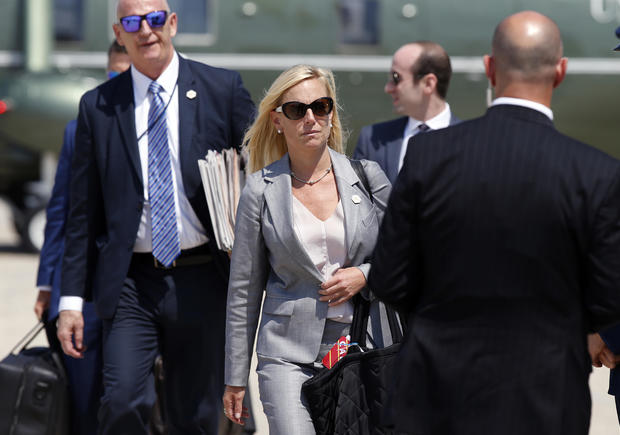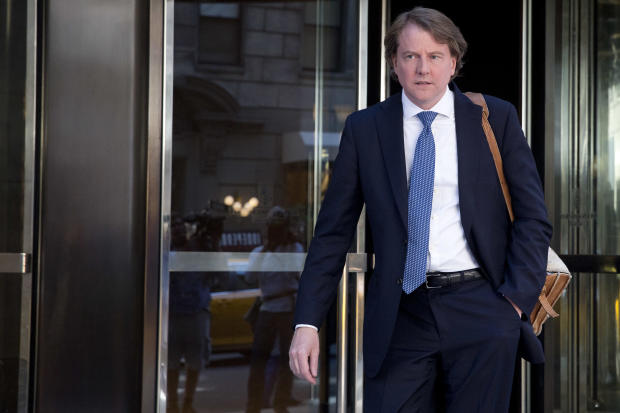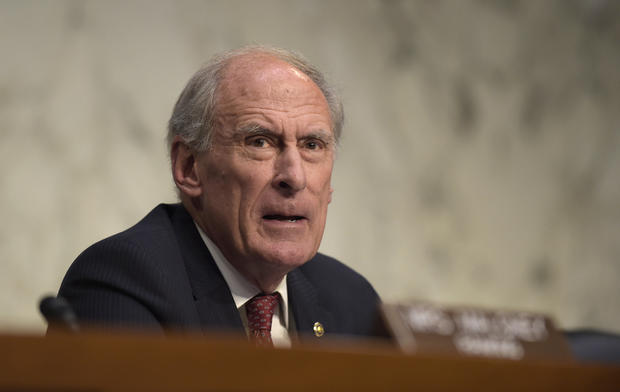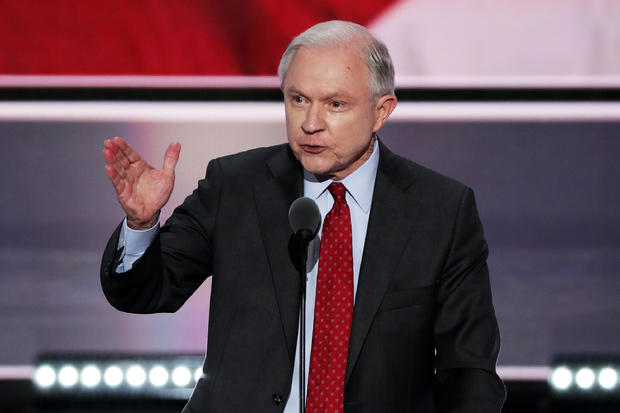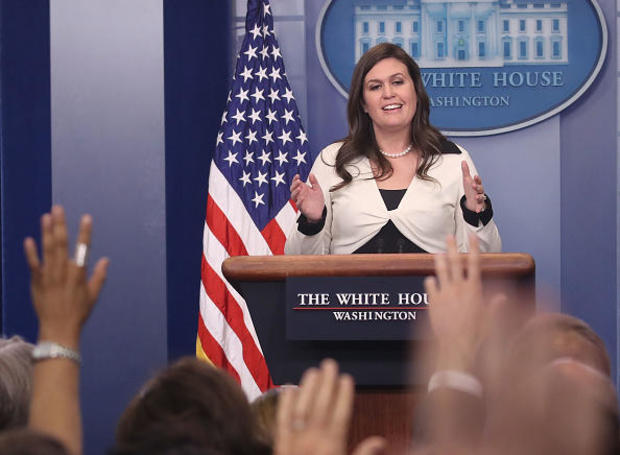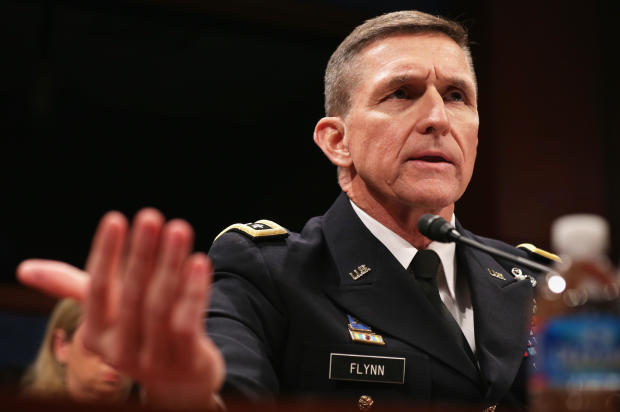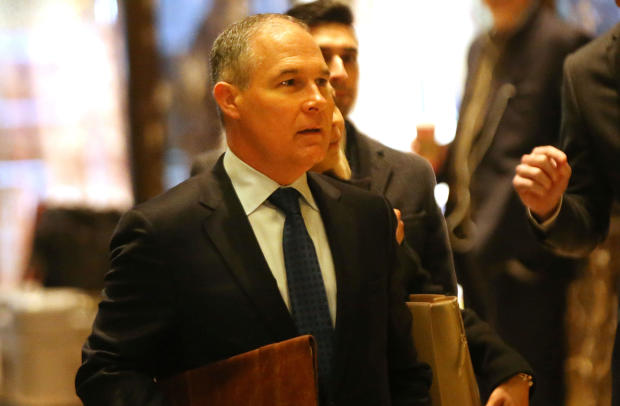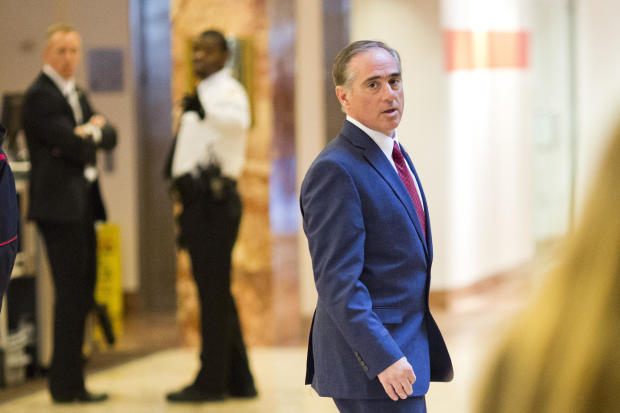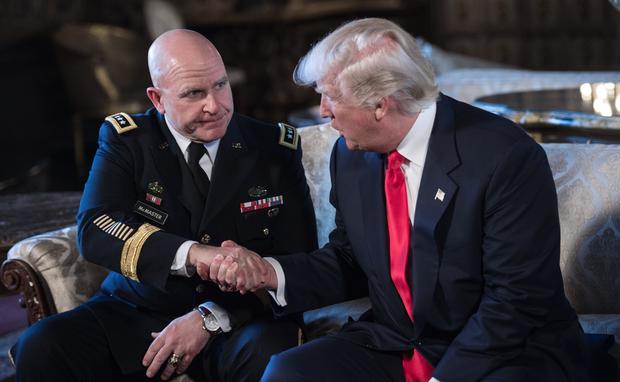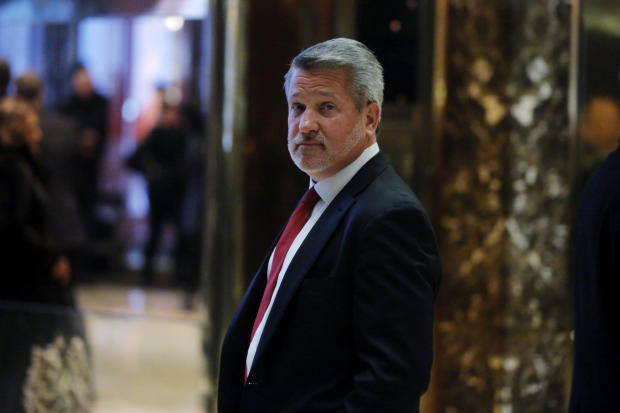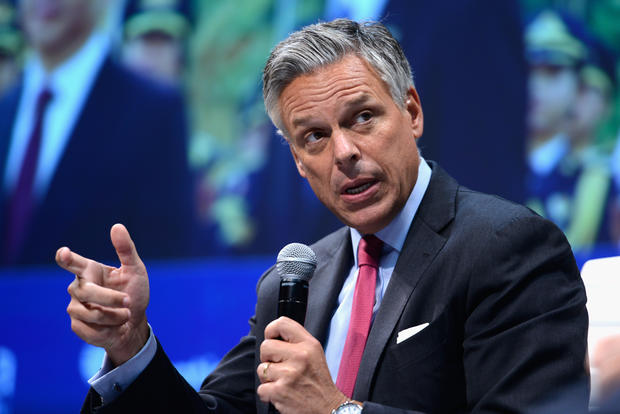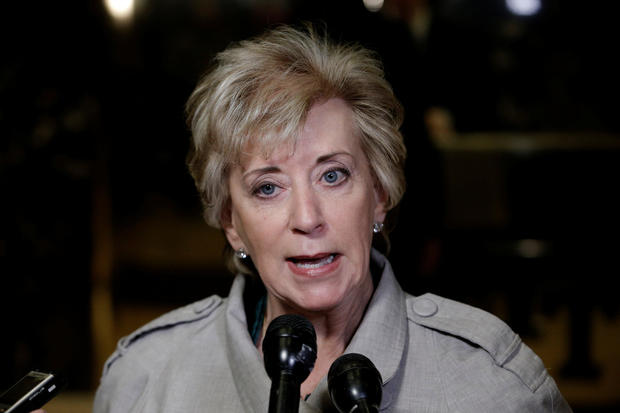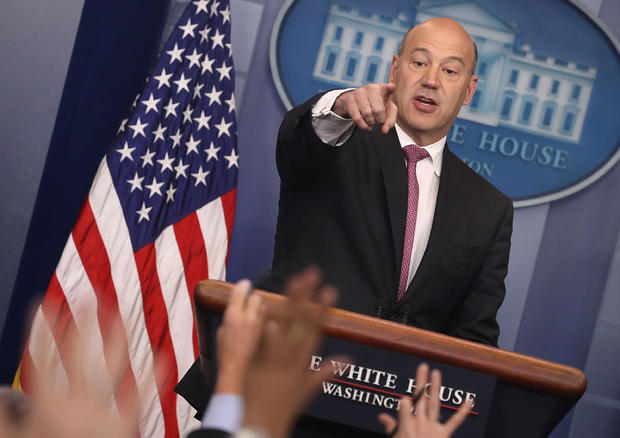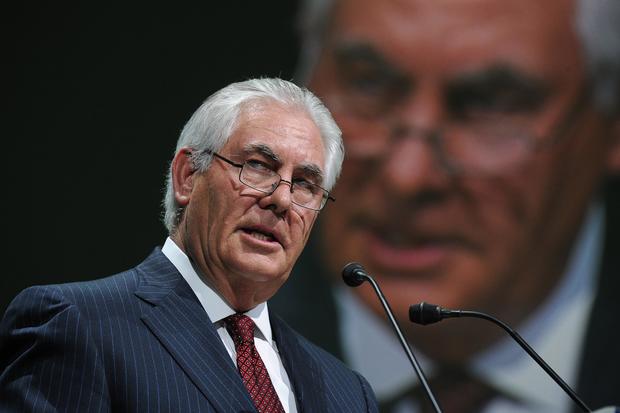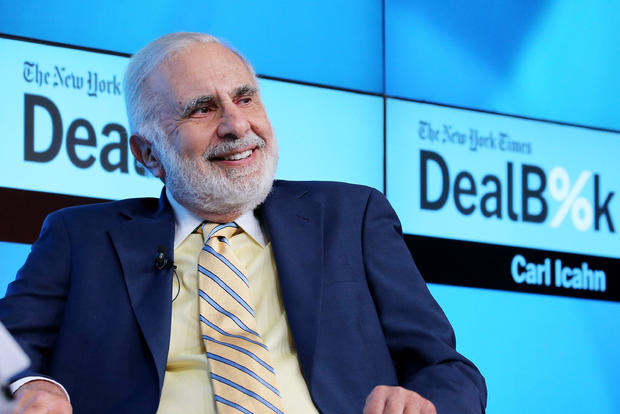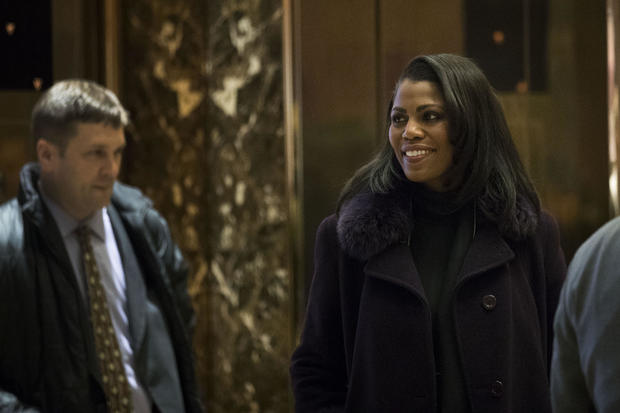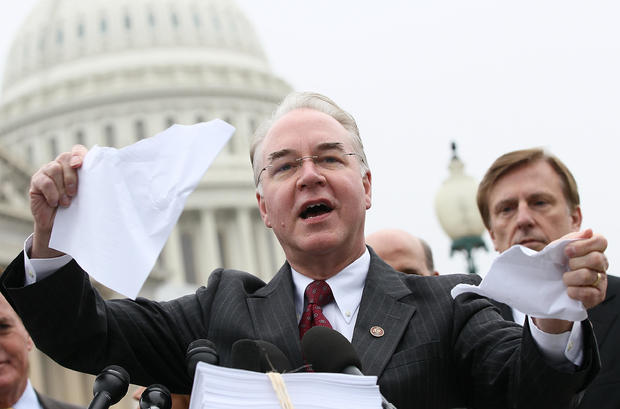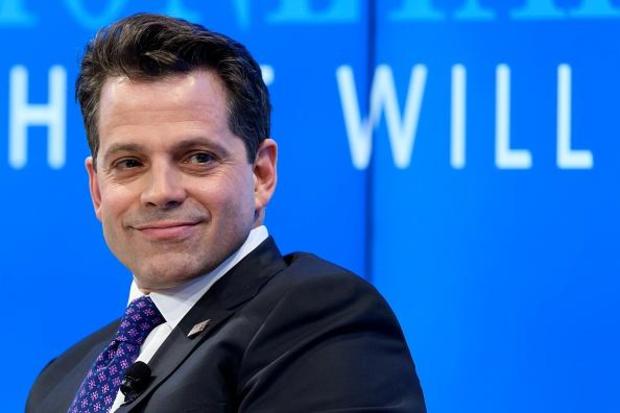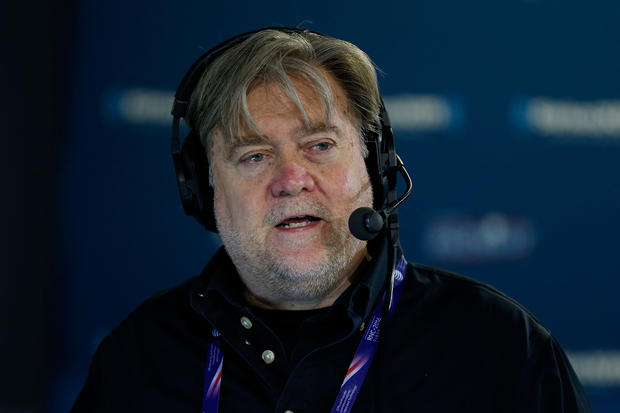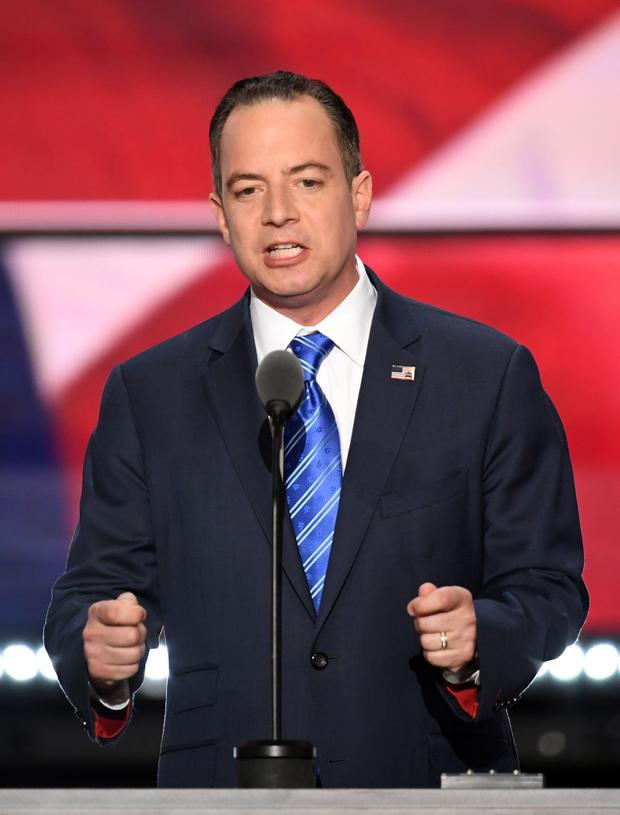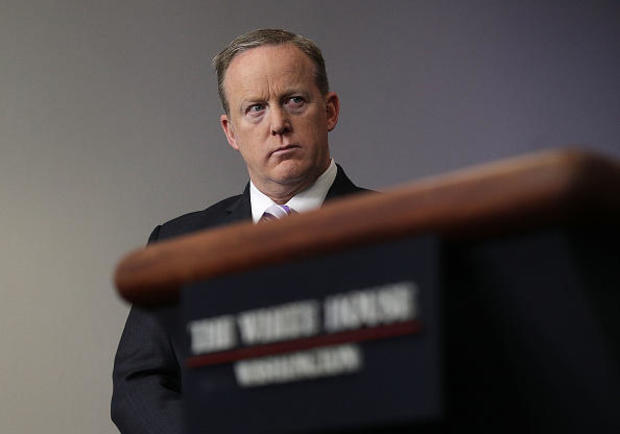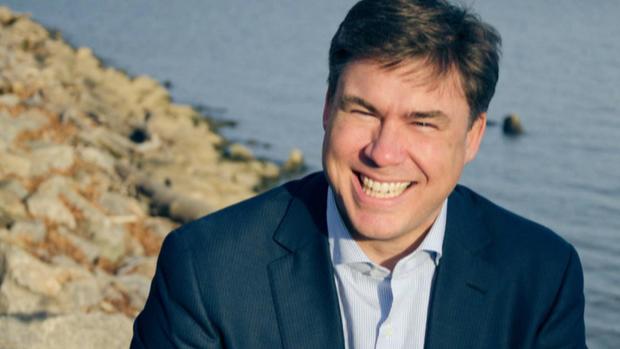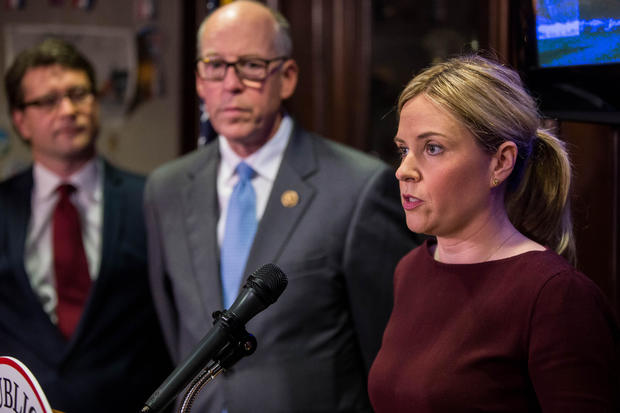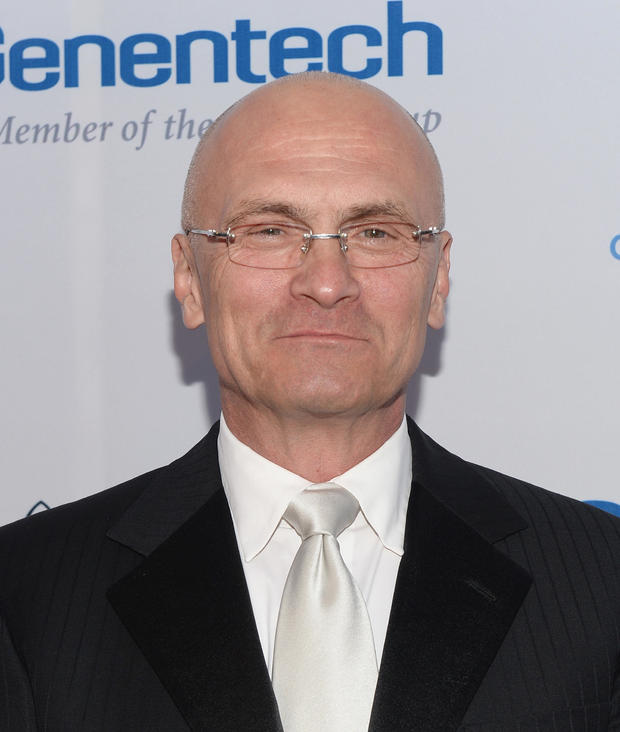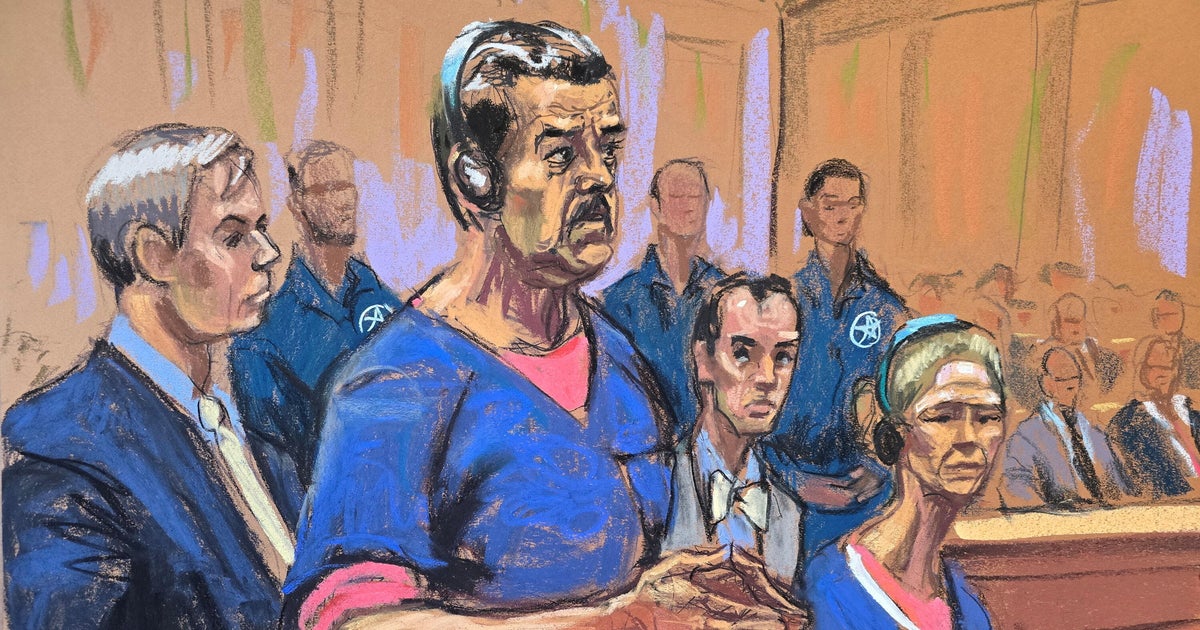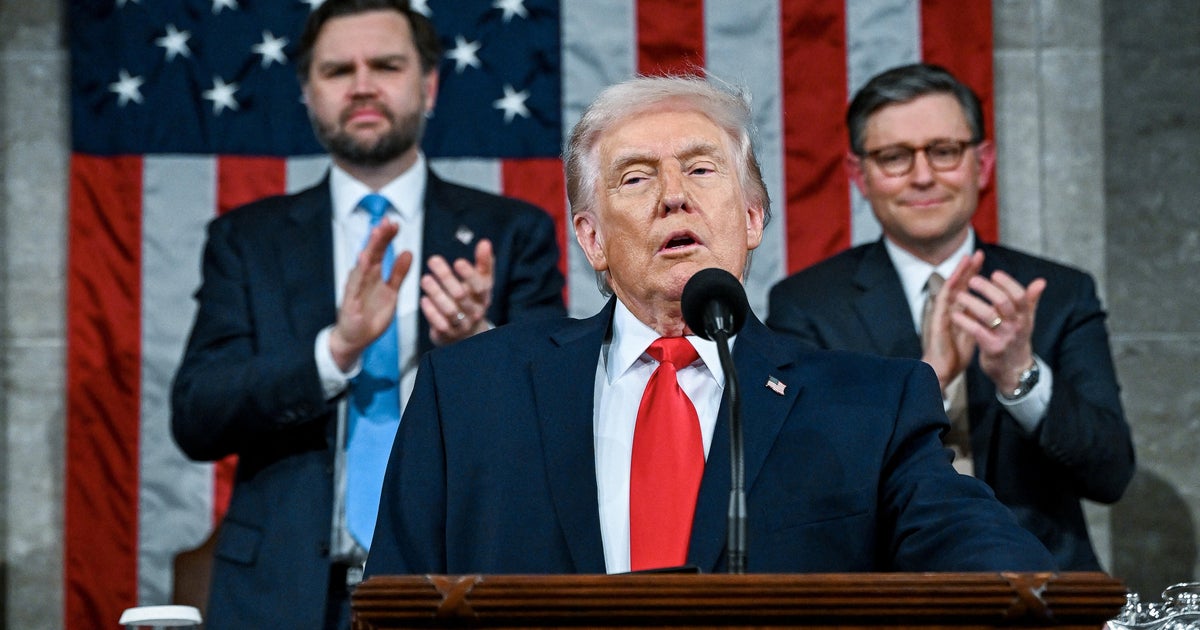Trump's team
Since his election in 2016, President Trump's team has undergone some dramatic shifts in personnel.
Here's a look at who Mr. Trump has tapped for his team since he first took office.
Vice President: Mike Pence
Mr. Trump chose Pence as his running mate in July 2016.
Pence also took over leading the transition team after New Jersey Gov. Chris Christie was ousted from the role.
Pence was elected governor of Indiana in 2013 and before that served in the House of Representatives.
Senior Adviser: Jared Kushner
Kushner, a New York real estate developer who is married to Mr. Trump's daughter Ivanka, was a key adviser during the campaign and remained influential after the election.
The president put him in charge of the new White House Office of American Innovation to overhaul government using ideas from the business world, and also asked Kushner to help broker a Mideast peace agreement.
Assistant to the President: Ivanka Trump
Ivanka Trump took on an official, but unpaid, White House role in late March 2017.
President Trump's 35-year-old daughter contributed significantly to her father's campaign, transition, and now, his presidency. She already had an office in the White House, but taking on an official role meant she has to comply with ethics rules.
Secretary of State: Mike Pompeo
Pompeo served as CIA director for the first year of the Trump administration, and in March 2018 the president chose him for secretary of state to replace Rex Tillerson. Pompeo was confirmed by the Senate on April 26.
Pompeo, previously a Republican congressman from Kansas, was a member of the House Intelligence Committee and a former Army captain.
Attorney General: William Barr
William Barr was confirmed as attorney general by the Senate on February 14, 2019.
Barr served in the same position once before, from 1991 to 1993, during the first Bush administration.
Chief of Staff: Mark Meadows
President Trump announced on Friday, March 6, 2020 that North Carolina Congressman Mark Meadows would replace Mick Mulvaney as White House chief of staff.
Meadows was chair of the conservative House Freedom Caucus from 2017 to 2019.
Secretary of Defense: Mark Esper
Mark Esper was confirmed on July 23, 2019, replacing replacing acting secretary Patrick Shanahan, who withdrew his name from consideration after reports of domestic violence incidents involving his family surfaced.
The Pentagon had been without a Senate-confirmed leader since December 2018, when former Defense Secretary James Mattis stepped down following President Trump's decision to withdraw troops from Syria.
Esper previously served as Secretary of the Army.
National Security Adviser: Robert C. O'Brien
On September 18, 2019, Trump announced via Twitter that O'Brien would step into the role vacated by John Bolton.
He had been serving as Special Presidential Envoy for Hostage Affairs in the Trump administration since 2018. In 2005, O'Brien was appointed by President George W. Bush as an alternate delegate to the United Nations General Assembly.
Treasury Secretary: Steven Mnuchin
Steven Mnuchin was confirmed as treasury secretary in February 2017 by a vote of 53-47.
Mnuchin served as the national finance chairman of the Trump campaign. He also spent 17 years working for Goldman Sachs.
Acting Director of National Intelligence: Richard Grenell
The former U.S. Ambassador to Germany was tapped by President Trump in February 2020. He replaced Joseph Maguire, who had been served as acting director since August 2019, following the resignation of Dan Coats.
EPA Administrator: Andrew Wheeler
Andrew Wheeler, who was serving as deputy administrator of the EPA, assumed the role of acting EPA administrator after Scott Pruitt resigned on July 5, 2018.
Prior to his deputy nomination by President Donald Trump, Wheeler worked as a lobbyist with a client list that included Murray Energy, one of the nation's largest coal mining companies.
FEMA Administrator: Peter T. Gaynor
The U.S. Senate confirmed Gaynor to lead the Federal Emergency Management Agency on January 14, 2020.
Gaynor was the acting FEMA administrator in 2019 and the deputy administrator in 2018. He has more than 11 years of experience in emergency management.
Department of Health and Human Services: Alex Azar
President Trump nominated former pharmaceutical executive Alex Azar to lead the Department of Health and Human Services on Nov. 13, 2017.
Azar had served as general counsel of HHS and later as the department's deputy secretary during President George W. Bush's administration.
Following his time at the department, he rose to become president of Eli Lilly USA, a global pharmaceutical company. If confirmed, Azar would replace Tom Price, who resigned in September.
Department of Homeland Security: Chad Wolf
President Trump chose Under Secretary of Homeland Security Chad Wolf to serve as acting secretary of the department following the departure of Kevin McAleenan in November 2019.
Wolf played a role in crafting some of the most controversial immigration policies rolled out by the Trump administration.
Counselor to the President: Kellyanne Conway
Mr. Trump named Kellyanne Conway as counselor to the president on Dec. 22, 2016.
Conway, a political strategist and pollster, helped turn Trump's campaign around while serving as campaign manager. She's been serving as a senior member of the Trump transition team.
CIA Director: Gina Haspel
Haspel was confirmed as CIA director on March 17, 2018. She replaced Mike Pompeo after he left the post to become secretary of state.
The first woman to head the CIA, she was also first female CIA officer to serve as deputy director and before that served the agency overseas and in top management posts. Haspel once ran a secret CIA prison where terror suspects were waterboarded, and helped carry out an order that the CIA destroy its waterboarding videos.
First Lady: Melania Trump
Donald Trump married Melania, a former model from Slovenia, in 2005.
As first lady, she has focused on the issue of combating cyber-bullying, launching a campaign called "Be Best."
White House National Economic Council: Larry Kudlow
Television pundit Larry Kudlow accepted President Trump's offer to head the White House National Economic Council on March 14, 2018.
The announcement came just days after Gary Cohn announced he was stepping down.
Kudlow, a regular on CNBC and other outlets, is an economic analyst who worked in the Office of Management and Budget during the Reagan administration.
Housing and Urban Development Secretary: Ben Carson
Carson was confirmed by the Senate as the secretary of the Department of Housing and Urban Development (HUD) on March 2, 2017.
Carson was raised in an impoverished area of Detroit and later became a renowned neurosurgeon. He drew national attention when he ran in the Republican primary race, and later endorsed Mr. Trump.
The 65-year-old has no previous policy experience in the field of urban development, and has never held elected office.
Agriculture Secretary: Sonny Perdue
Mr. Trump chose Perdue to lead the Agriculture Department in January 2017.
Perdue is a farmer's son who built businesses in grain trading and trucking before serving as the governor of Georgia from 2003 to 2011.
Labor Secretary: Eugene Scalia
Labor Secretary Eugene Scalia was ceremonially sworn in at the White House on Sept. 30, 2019.
Scalia – the son of late Supreme Court Justice Antonin Scalia – spent most of his career as a corporate lawyer.
He replaced Alexander Acosta, who resigned amid controversy over his handling of Jeffrey Epstein's secret 2008 plea deal when Acosta was U.S. Attorney in Florida.
Commerce Secretary: Wilbur Ross
Ross was confirmed by the Senate as commerce secretary on Feb. 27, 2017.
Ross is an investor and former banker, experienced in buying failing companies and reviving them. He is worth an estimated $2.9 billion.
Transportation Secretary: Elaine Chao
The Senate confirmed Elaine Chao to serve as transportation secretary on Jan. 31, 2017.
Chao served as labor secretary under President George W. Bush from 2001 to 2009. She was the only Cabinet member to serve through his entire two terms in the White House, and the first Asian-American woman ever to hold a Cabinet-level position.
Chao is married to Senate Majority Leader Mitch McConnell.
Education Secretary: Betsy DeVos
DeVos' nomination as education secretary was confirmed by the Senate on Feb. 7, 2017.
DeVos had become one of Trump's most controversial Cabinet picks, and she only garnered 50 lawmakers' votes. Vice President Mike Pence cast the tie-breaking vote.
The philanthropist and education activist, who has strongly supported charter schools and vouchers, served as chair of the Michigan Republican Party from 1996 to 2000.
Energy Secretary: Dan Brouillette
Dan Brouillette was confirmed on Dec. 2, 2019 to replace former Energy Secretary Rick Perry.
Brouillette had served as deputy energy secretary since 2017. He previously worked for the department under the administration of former President George W. Bush. In between, he was an executive at the United Services Automobile Association (USAA) and the Ford Motor Company.
Veteran Affairs: Robert Wilkie
Robert L. Wilkie was confirmed as Veteran Affairs (VA) secretary on July 23, 2018. Wilkie, a former assistant secretary of defense under President George W. Bush, received bipartisan support in the Senate.
Wilkie replaced David Shulkin, who was fired amid ethics allegations and internal rebellion at the department over the role of private care for veterans.
Chairman of the Joint Chiefs of Staff: Gen. Mark Milley
General Mark Milley was named Chairman of the Joint Chiefs of Staff to replace General Joseph Dunford, whose term expired in October 2019.
Milley previously served as U.S. Army Chief of Staff. He was a Green Beret and commanded troops in Afghanistan.
Ambassador to the UN: Kelly Craft
Kelly Craft was confirmed as the new ambassador to the United Nations on Aug. 1, 2019. She replaced Nikki Haley, who stepped down from the position at the end of 2018.
Craft, a longtime GOP activist from Kentucky, previously served as U.S. ambassador to Canada.
White House Counsel: Pat Cipollone
Washington lawyer Pat Cipollone replaced Donald McGahn as White House counsel in December 2018.
Cipollone worked at the Justice Department in the 1990s, as counsel to then-Attorney General William P. Barr.
Head of Securities and Exchange Commission: Jay Clayton
Mr. Trump chose Clayton to head the Securities and Exchange Commission on Jan. 4, 2017.
Clayton is a Wall Street attorney with experience in corporate mergers and public stock launches.
U.S. Citizenship and Immigration Services: Ken Cuccinelli
Ken Cuccinelli, who had been leading U.S. Citizenship and Immigration Services (USCIS) since June 2019, was named acting deputy secretary of the Department of Homeland Security in November 2019.
Cuccinelli has been a vocal defender of President Trump's crackdown on illegal and legal immigration.
U.S. Trade Representative: Robert Lighthizer
Lighthizer was named as U.S. trade representative on Jan. 3, 2017.
Lighthizer was previously a deputy U.S. trade representative under President Reagan, and has since worked as a trade attorney in Washington, D.C.
Trade council head: Peter Navarro
Mr. Trump named Navarro to lead the newly created White House trade council on Dec. 21, 2017.
Navarro is a business professor at the University of California-Irvine. In his book, "Death by China," he endorsed a hard-line approach toward U.S. economic relations with China.
U.S. Ambassador to Israel: David Friedman
Mr. Trump selected New York bankruptcy attorney David Friedman to be the U.S. ambassador to Israel.
Friedman was a Trump campaign adviser whose views align with the Israeli far right.
U.S. Ambassador to China: Terry Branstad
Branstad was named to the post of U.S. ambassador to China on Dec. 7, 2016.
Branstad served as governor of Iowa from 1983 to 1999 and again since 2011, making him the longest-serving governor in American history.
Bloomberg reported that Branstad is a longtime friend of Chinese President Xi Jinping.
Homeland Security Adviser: Douglas Fears
President Trump announced in June 2018 that Rear Adm. Douglas Fears would replace Homeland Security Adviser Tom Bossert, who had left the post after less than a year.
Social media director: Dan Scavino
Dan Scavino (center) was named as White House social media director on Dec. 22, 2017.
Scavino managed social media during the Trump campaign. He previously worked as the general manager of the Trump National Golf Club.
Mick Mulvaney
On March 6, 2020, Trump announced on Twitter that Mick Mulvaney would be stepping down from chief of staff duties to become the U.S. Special Envoy to Northern Ireland.
Mulvaney served as the acting White House chief of staff from December 2018 through March 2020. The former South Carolina congressman was elected to the House of Representatives as part of the tea party wave in 2010.
Rick Perry
Perry notified President Trump on October 18, 2019 that he planned to step down as energy secretary after serving more than two and a half years. He announced via Twitter that he wrapped up his final official duties at the White House on November 25, 2019.
Perry served as governor of Texas from 2000 to 2015. He ran unsuccessfully for the White House in the 2012 and 2016 Republican primaries.
Perry previously suggested that the Department of Energy should be abolished.
John Bolton
On September 10, 2019, President Trump announced via Twitter that John Bolton would no longer serve as National Security Advisor, effective immediately.
Bolton, a former ambassador to the United Nations, had held the job since March 2018, replacing General H.R. McMaster.
Bolton is known to be a hardliner on the Iran nuclear deal and on North Korea. He was Mr. Trump's third national security advisor in just over a year.
Alexander Acosta
President Trump nominated Alexander Acosta for labor secretary on Feb. 16, 2017, a day after the president's previous pick, Andrew Puzder, withdrew his name from consideration for the post.
Acosta resigned on July 12, 2019 amid controversy over his handling of a secret 2008 plea deal for accused sex offender Jeffrey Epstein when Acosta was U.S. Attorney in Florida.
Kevin McAleenan
McAleenan served as Acting Secretary of the Department of Homeland Security following the departure of Kirstjen Nielsen in April 2019, and stepped down at the end of October 2019.
He previously served as Customs and Border Patrol Commissioner and took over at DHS with orders from President Trump to clamp down on migrants crossing the the U.S.-Mexico border.
Patrick Shanahan
President Trump named Patrick Shanahan acting defense secretary following the resignation of James Mattis. Shanahan withdrew from consideration for the permanent defense secretary position on June 18, 2019, the same day the Washington Post published a story about alleged incidents of domestic violence from 2010 and 2011.
John Kelly
Kelly took over as White House chief of staff in the summer of 2017, replacing Reince Priebus. In early December 2018, President Trump announced that Kelly would be leaving by the end of the year.
Before that, Kelly, a retired Marine Corps General, had been serving as secretary of the Department of Homeland Security.
Joseph Maguire
Joseph Maguire was named acting Director of National Intelligence in August 2019, following the resignation of Dan Coats, and served until February 2020. Maguire previously served as director of the National Counterterrorism Center.
Ryan Zinke
On December 15, 2018, President Trump announced on Twitter that Ryan Zinke would be leaving his post as Interior secretary at the end of 2018.
Zinke's tenure at Interior was marked by investigations by the department's Inspector General and the Justice Department over his spending and other issues.
He is a former Navy SEAL commander and decorated Iraq veteran.
James Mattis
Mattis resigned as defense secretary in December 2018 after nearly two years in the job, citing disagreements with the president. His deputy, Patrick Shanahan, was named to take over as acting defense secretary Jan. 1, 2019.
Mattis, a retired Marine Corps general and decorated war veteran, has been a vocal critic of the Iran nuclear deal and a skeptic of Russian President Vladimir Putin.
Nikki Haley
Haley was confirmed for the post of U.S. Ambassador to the United Nations on Jan. 24, 2017. She stepped down from the position at the end of 2018.
She was the first woman to be named to Mr. Trump's Cabinet. Before that, Haley, a Republican, served as the governor of South Carolina since 2011.
Kirstjen Nielsen
Kirstjen Nielsen was confirmed to lead the Department of Homeland Security in December 2017. She announced she was leaving in April 2019 as President Trump pushed for harsher action on immigration.
Nielsen is a cybersecurity expert who previously served as deputy White House chief of staff and as a top aide to John Kelly when he was in the Homeland Security position.
Donald McGahn
McGahn was announced as an assistant to the president and White House counsel on Nov. 25, 2016; he left the position in October 2018.
McGahn was general counsel for the Trump campaign and was working on the transition.
Dan Coats
Coats was named to the role of director of national intelligence on Jan. 5, 2017. He announced plans to resign on July 28, 2019 after reports of rising tensions and policy differences with the president.
Coats was a U.S. senator from Indiana from 1989 to 1999, and again from 2011 to early 2017 when he retired.
Jeff Sessions
Sessions was confirmed as attorney general by a vote of 52-47 in a bitterly divided Senate and served in the role for nearly two years.
Sessions came under fire from President Trump after he recused himself from overseeing Robert Mueller's special counsel investigation.
On Nov. 7, 2018, the day after the midterm elections, the president requested and received Sessions' resignation.
Sarah Huckabee Sanders
Sarah Huckabee Sanders left her role as White House press secretary at the end of June 2019.
Huckabee Sanders was named as the press secretary on July 21, 2017, hours after Sean Spicer resigned from the post.
She had previously served as deputy White House press secretary and before that as a senior advisor for Trump's presidential campaign.
Michael T. Flynn
Flynn was chosen on Nov. 18, 2016, for the role of national security adviser but resigned on Feb. 13, 2017, less than a month after President Trump took office.
Flynn came under fire for misleading Vice President Mike Pence about his talks with the Russian ambassador, including discussions of U.S. sanctions.
The former Army lieutenant general was a registered Democrat, but became a critic of President Obama and campaigned aggressively for Mr. Trump. He served as the director of the Defense Intelligence Agency from 2012 to 2014.
Scott Pruitt
Pruitt was confirmed 52-46 as head of the Environmental Protection Agency, a federal agency he repeatedly sued to during the Obama administration, when he was Oklahoma's attorney general.
Pruitt came under fire from environmentalists due to his close ties with oil and gas companies and statements he's made casting doubt on climate change.
He resigned on July 5, 2018, following intense scrutiny for a series of questionable ethical decisions and his spending.
David Shulkin
Shulkin was confirmed to lead the Department of Veterans Affairs on Feb. 13, 2017 by a unanimous vote in the Senate. He was fired by the president on March 28, 2018.
Shulkin previously served as the VA's undersecretary for health and spent more than two decades in hospital management.
Gen. H.R. McMaster
U.S. Army Lieutenant General H.R. McMaster (L) was named national security adviser in February 2017 to replace Gen. Michael Flynn, who was ousted for withholding information from Vice President Mike Pence about his contacts with Russia.
On March 22, 2018, Trump announced that McMaster would be replaced by former Ambassador to the United Nations John Bolton.
Bill Shine
Bill Shine, former co-president of Fox News and Fox Business Network, served as an assistant to the president and deputy chief of staff for communications from July 2018 until March 8, 2019.
Shine resigned from his White House position to become a senior adviser to Trump's 2020 re-election campaign.
A close ally of Roger Ailes, Shine was accused in lawsuits of helping Ailes cover up allegations of sexual harassment, although he was never directly linked to wrongdoing.
Jon Huntsman
In a letter dated August 5, 2019, Huntsman announced his resignation from this post, effective October 3, 2019. His resignation comes amid rumors that he is considering running for another term as governor of Utah.
President Trump nominated Huntsman to serve as ambassador to Russia in March 2017.
Huntsman, 56, served as the U.S. ambassador to China under President Obama and as the U.S. ambassador to Singapore under Presidents George H.W. Bush and Bill Clinton. He also served as governor of Utah from 2005 until 2009, and he ran for president as a Republican in 2012.
Linda McMahon
McMahon was confirmed as head of the Small Business Administration on Feb. 14, 2017. On March 29, 2019 she announced she was leaving to take a role at a pro-Trump PAC.
McMahon and her husband, Vince, founded and built World Wrestling Entertainment (WWE).
Gary Cohn
Cohn announced that he was resigning from his role as Director of the National Economic Council and chief economic advisor to President Trump on March 6, 2018.
Cohn had urged the president against imposing steep tariffs on steel and aluminum, which President Trump announced the week before.
He had been with the administration since the beginning. He was formerly the president and COO of Goldman Sachs.
Rex Tillerson
Tillerson, the former CEO of ExxonMobil, served as secretary of state until March 13, 2018, when President Trump ousted him after months of reported tensions and public disputes.
Before his confirmation, some leading lawmakers voiced concern about Tillerson's business ties to Russia and his relationship with Russian President Vladimir Putin, who honored Tillerson with the Order of Friendship in 2013.
Carl Icahn
Icahn was named to the role of special adviser on regulatory reform on Dec. 21, 2016 and left that role the following August.
The billionaire investor offered advice to Mr. Trump on economic regulations, but was not a federal employee and had no specific duties in the administration.
Hope Hicks
Hicks was officially named White House communications director on Sept. 12, 2017, after filling that role in an interim basis since Anthony Scaramucci's departure in July.
She announced her resignation on Feb. 28, 2018, a day after testifying for nine hours before the House Intelligence Committee as part of its investigation into Russia's interference in the 2016 election.
Omarosa Manigault
Manigault was named as an assistant to the president and director of communications for the Office of Public Liaison on Jan. 4, 2017.
In December 2017, the White House announced that Manigault "resigned ... to pursue other opportunities" and that her last day would be Jan. 20, 2018.
Manigault, a vocal Trump supporter during the campaign, gained fame as a contestant on season one of "The Apprentice."
Tom Price
Price, a Republican representative from Georgia, was confirmed as health and human services secretary Feb. 10, 2017, by a Senate vote of 52-47.
He resigned on Sept. 29, 2017, amid scrutiny over his use of private planes at taxpayer expense and three days after Senate Republican leaders decided not to hold a vote on a bill to repeal Obamacare because they didn't have the votes to pass the bill.
Price, an orthopedic surgeon by trade, served five terms in Congress and was chairman of the House Budget Committee.
He has led the charge to repeal Obamacare, also known as the Affordable Care Act, saying it doesn't give patients or doctors adequate health care choices.
Anthony Scaramucci
Scaramucci was named White House communications director on July 21, 2017. But on July 31, President Trump removed him from the position after Scaramucci's widely publicized rant criticizing other members of the president's team.
Prior to Scaramucci's appointment, Sean Spicer had been serving as both communications director and press secretary. Spicer resigned from the Trump administration on the same day Scaramucci was brought on.
Steve Bannon
Mr. Trump announced Bannon's appointment to White House strategist on Nov. 13, 2016, setting off a firestorm of criticism. After a turbulent time in the White House, Bannon's tenure ended on Aug. 18, 2017.
Bannon headed the right-wing Breitbart News for almost five years before becoming CEO of the Trump campaign. Critics decried Bannon's role in encouraging the "alt-right" movement and white nationalist supporters.
Reince Priebus
One of Mr. Trump's first personnel choices was to name Priebus as the White House chief of staff on Nov. 13, 2016. Priebus had served as the chairman of the Republican National Committee since 2011.
But after just six months in office, on July 28, 2017, Trump tweeted that he had named John Kelly to replace Priebus as White House chief of staff.
Sean Spicer
Spicer was named as press secretary on Dec. 22, 2016. He resigned on July 21, 2017, shortly after President Trump selected Anthony Scaramucci as White House communications director.
Spicer had essentially been serving as both communications director and press secretary but had stepped back from press secretary duties in the weeks before his resignation.
Previously, Spicer served as communications director of the Republican National Committee since 2011.
Mike Dubke
Dubke resigned from his role as White House communications director in May 2017.
Previously, Dubke served as a partner for the political advertising group Crossroads Media, which describes itself as "the premier Republican media services firm." Dubke also led the Virginia-based Black Rock Group, a strategic communications and public affairs firm.
Katie Walsh
Walsh was named deputy chief of staff on Jan. 4, 2016, but she left her post in March to join an outside political organization supporting the Trump agenda.
Walsh was serving as the chief of staff for the Republican National Committee before joining the White House staff.
Andy Puzder
The president-elect nominated Puzder as labor secretary on Dec. 8, 2017. but Puzder withdrew from consideration two months later.
Puzder, the CEO of CKE Restaurants, which owns fast food chains Carl's Jr. and Hardee's, came under fire for business practices including his company's racy advertising and his opposition to raising the minimum wage. He also admitted that he and his wife had employed an undocumented immigrant for housework, and faced negative headlines about his messy public divorce from three decades ago.
